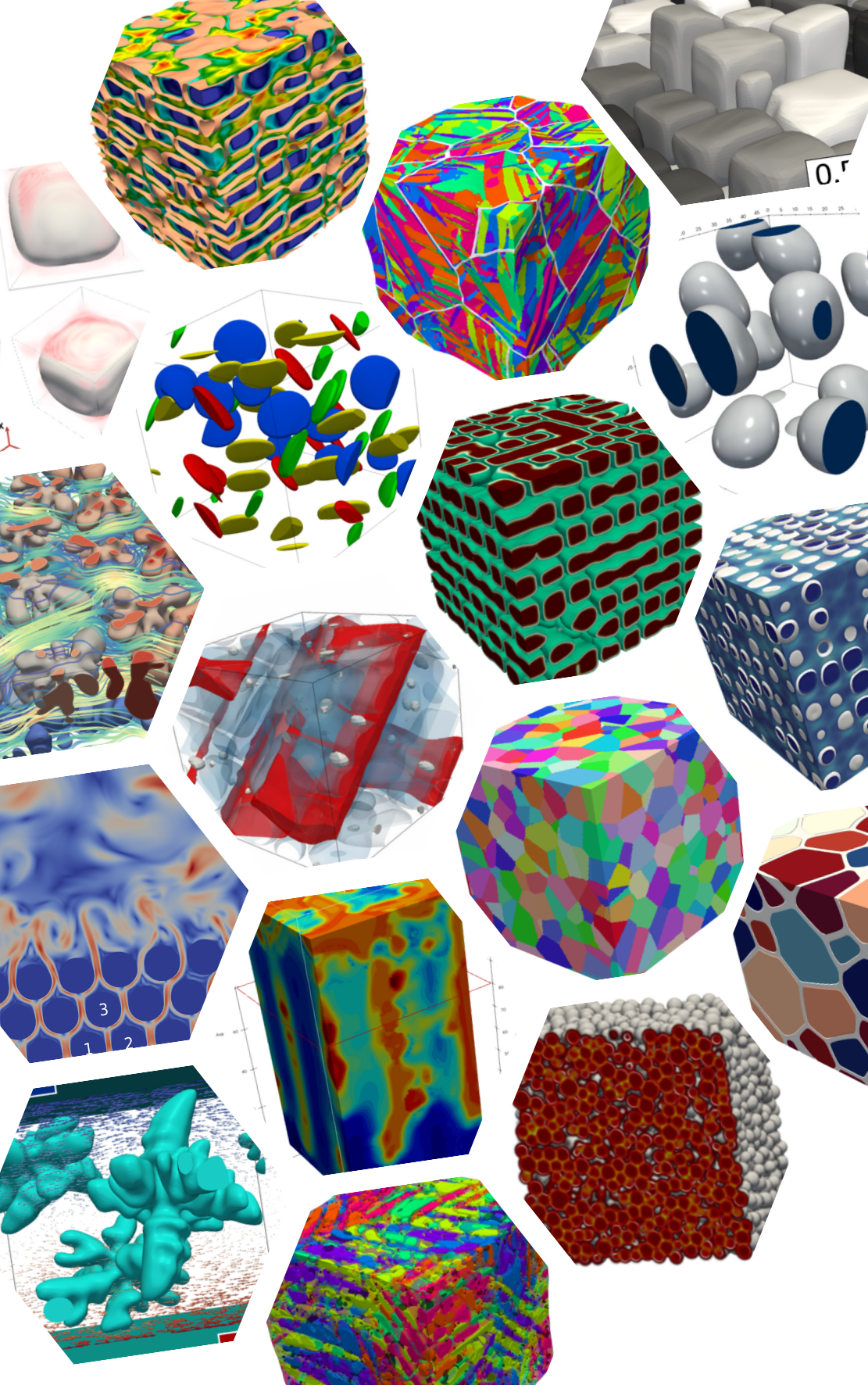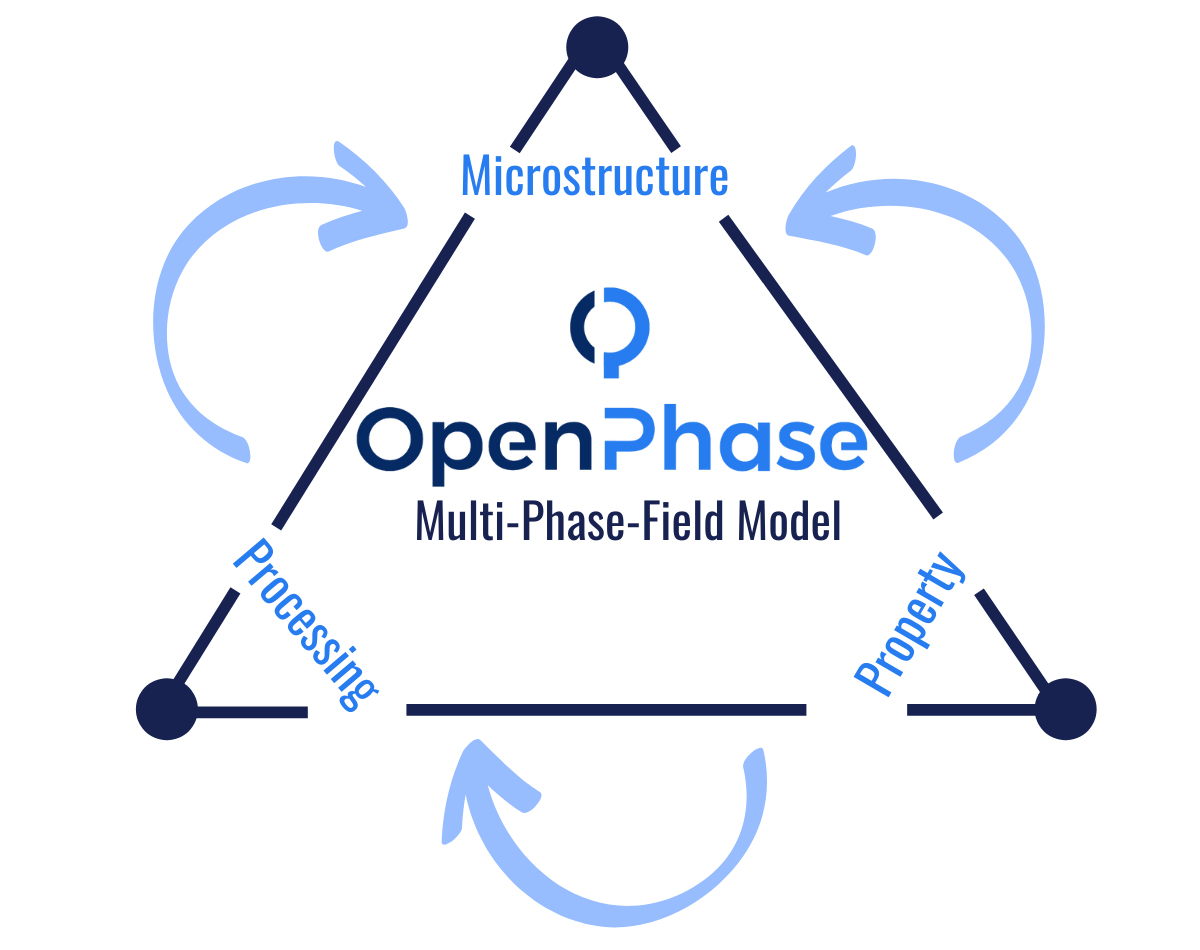Over the past 15 years, OpenPhase has evolved into a versatile multi-physics open source software by combining the phase-field approach, well known to deal with solidification, grain growth and phase transformations in polycrystalline materials, with finite strain mechanics and lattice Boltzmann method. The combined approach is well suited to address structural and phase transformations in real multicomponent and multiphase systems involving large deformations and fluid dynamical problems. This unique combination opens the way to study a wide range of physical phenomena. Some examples are
- Solidification in real multicomponent systems considering melt flow
- Structural transformation in solids (grain growth & recrystallization)
- Solid-solid phase transformations accompanied by large deformations and plasticity
- Phase transformations in fluid systems considering multiphase flow and wetting phenomena
- Heat exchange in reactive gas flows through particle beds
Current model development activities in OpenPhase project include the effects of anisotropic interface energy in faceted crystals, precipitation and creep in superalloys, martensite and bainite formation in steel, multicomponent diffusion and heat conduction in addtive manufacuring, and solid combustion in contact with reactive gases. The entire OpenPhase code is parallelized using OpenMP and MPI hybrid parallelism and there is ongoing work within CRC/TRR287 to incorporate GPU computing capabilities into the software.

Why OpenPhase?
A powerful tool to simulate complex scientific problems
Smart microstructure creation
Easy creation of initial microstructures, realistic nucleation based on various properties.
Extensive physical modules
Diffusion, thermodynamics, mechanics, chemical, fluid-dynamics, magnetism, electrics, etc.
All-in-one design workflow
OpenPhase has a modular structure which allows easy extensions of the library and simplifies the development of user programs.
A mesoscale paradigm
- Microstructure
- Processing
- Property

From processing to property
The core is based on the multiphase field model. The project has the form of a library and is written in object oriented C++. It has a modular structure which allows easy extension of the library and simplifies the development of user programs.
Choose your option.
OpenPhase Academic
Open-SourceOPStudio
+ProSupport| OpenPhase Academic Open-Source | OPStudio +ProSupport | |
|---|---|---|
| Mechanics framework | Small strain mechanics | Finite strain mechanics |
| Chemical diffusion | Binary | Multicomponent |
| Thermodynamic interfaces | Thermo-Calc & Open Calphad | |
| OpenMP / MPI parallelism | ||
| Email support | ||
| Intuitive graphical user-interface (GUI) | ||
| Maintenance & support | ||
| Custom solutions | ||
| Download | OPStudio |
FAQ
Still have questions?
View More FAQsVisit our complete FAQ section for detailed answers to all your questions